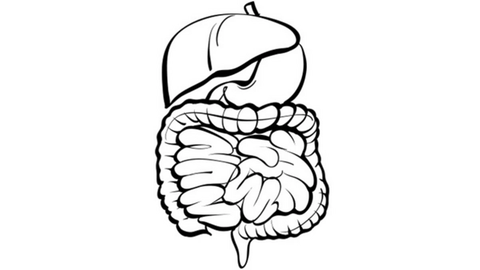Gastric cancer cells: © LASZLO – stock.adobe.com
First-line treatment with bemarituzumab plus chemotherapy (mFOLFOX6) demonstrated a statistically significant and clinically meaningful improvement in overall survival (OS) vs placebo plus chemotherapy in patients with unresectable locally advanced or metastatic gastric or gastroesophageal junction (G/GEJ) cancer with FGFR2b overexpression and who are non-HER2 positive, according to findings from the phase 3 FORTITUDE-101 trial (NCT05052801).1
In the study, FGFR2b overexpression was defined as 2+/3+ staining in ≥10% of tumor cells by centrally performed immunohistochemistry testing. With this, the primary end point of the phase 3 FORTITUDE-101 trial (NCT05052801) was met at its prespecified interim analysis.
Looking at safety, the most frequently reported treatment-emergent adverse events (TEAEs) occurring in more than 25% of patients receiving the bemarituzumab plus chemotherapy regimen included decreased visual acuity, punctate keratitis, anemia, neutropenia, nausea, corneal epithelial defects, and dry eye. Ocular toxicities, which were consistent with findings from the phase 2 trial, occurred in both treatment arms but were notably more frequent and more severe in the bemarituzumab arm of the phase 3 study.
Full results from the trial will be presented at a future medical meeting.
“Most patients with gastric cancer are diagnosed at an advanced stage, with poor prognosis, low survival rates, and limited therapeutic options,” said Jay Bradner, MD, executive vice president of research and development at Amgen, in a press release. “These first positive topline results of an FGFR2b targeted monoclonal antibody from our phase 3 FORTITUDE-101 study mark a meaningful advance in the development of effective targeted therapy for gastric cancer.”
The randomized, multicenter, double-blind, placebo-controlled, phase 3 FORTITUDE-101 trial evaluated bemarituzumab plus mFOLFOX6 vs placebo plus mFOLFOX6 as first-line therapy in 547 patients with advanced G/GEJ cancer with FGFR2b overexpression. The FORTITUDE-101 trial included 300 sites across 37 countries.
Enrollment was open to patients with histologically documented unresectable, locally advanced/metastatic G/GEJ cancer not amenable to curative therapy who had FGFR2b overexpression. Patients were required to have an ECOG performance status of 1 or less; measurable disease or nonmeasurable but evaluable disease, according to RECIST v1.1; no contraindications to mFOLFOX6 chemotherapy; and adequate organ and bone marrow function.2
The primary end point of the study is OS, and secondary end points include progression-free survival, overall response rate, number of patients who experience a TEAE, duration of response, disease control rate, pharmacokinetics.
In addition to FORTITUDE-101, a phase 3 trial (NCT05111626) is currently evaluating bemarituzumab plus chemotherapy and nivolumab (Opdivo) in patients with first-line gastric cancer. Data from this study are expected to read out in the second half of 2025.
REFERENCES:
-
Amgen announces positive topline phase 3 results for bemarituzumab in fibroblast growth factor receptor 2b (FGFR2B) positive first-line gastric cancer. News release. Amgen. June 30, 2025. Accessed June 30, 2025. https://tinyurl.com/2vck8tjj
-
Bemarituzumab or placebo plus chemotherapy in gastric cancers with fibroblast growth factor receptor 2b (FGFR2b) overexpression (FORTITUDE-101). News release. February 7, 2025. Accessed June 30, 2025. https://clinicaltrials.gov/study/NCT05052801
